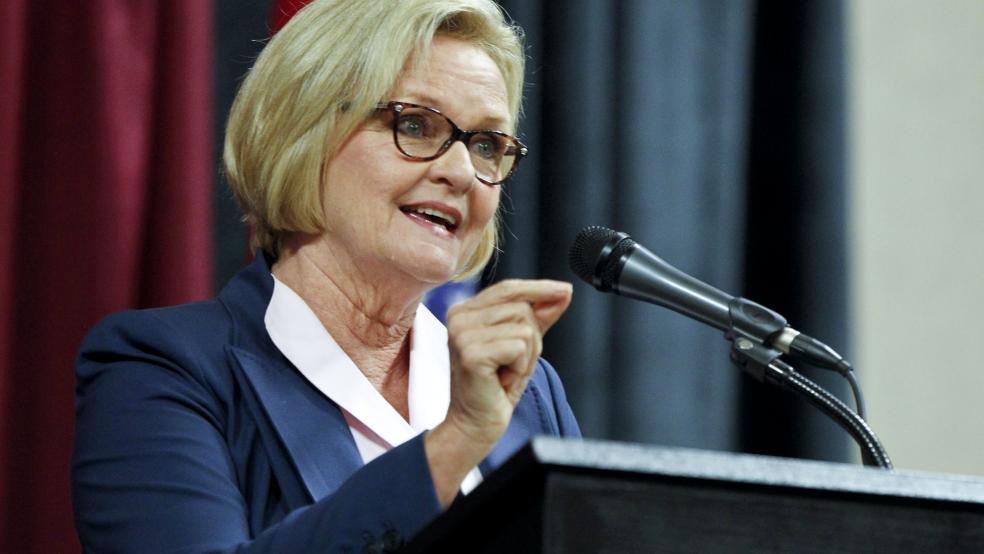Sen. Claire McCaskill of Missouri has been on a tear recently in going after government fraud and waste.
The ranking Democrat on the Senate’s chief oversight committee and a former state auditor in Missouri helped blow the whistle on a multibillion-dollar federal program to pay for cell phones for the poor that is rife with fraud.
Related: Want to Slash the Deficit? Stop the Billions in Improper Government Payments
She has demanded answers to questions raised by a recent report that the Pentagon wasted $28 million purchasing uniforms with a forest camouflage pattern for the Afghan army — even though forests only cover two percent of the country.
And now she is going after the Department of Veterans’ Affairs after the VA’s inspector general confirmed her suspicions that the agency had made billions of dollars of improper payments.
McCaskill, the ranking member of the Senate Homeland Security and Government Affairs Committee, says she is disturbed by the IG’s finding that the VA made $5.5 billion of improper payments in 2016 or $500 million more than the previous year.
The IG’s report issued in May, said the improper payments, for the most part, were made through two VA health care programs last year: VA community care, which allows veterans to seek care in the private sector rather than go to a VA health center, and a program that helps the elderly and chronically ill. An improper payment is an overpayment or underpayment and could range from an honest mistake by the government or contractors to out and out fraud.
Related: Another VA Failure: The Veterans’ Choice Program Is Running Out of Money
The community care programs registered improper payment rates of an astounding 75 percent, which means that three out of four payments were incorrect or shouldn’t have been made. The other program for the elderly and chronically ill didn’t do much better, with a rate of 69 percent, the IG reported.
The VA didn’t fully comply with the Improper Payments Elimination and Recovery Act, which mandates federal departments and agencies to review and report on major programs vulnerable to improper payments. The inspector general recommended that the Acting Under Secretary for Health at the time “take steps to reduce improper payment rates and achieve reduction targets.”
Stars & Stripes reported that McCaskill sent a letter to the VA last week voicing dismay over the agency’s shoddy track record of guarding against improper payments.
“Given the importance of eliminating waste, fraud and abuse and the scale of taxpayer spending on these programs, proper adherence to [the act] is warranted,” McCaskill wrote.
VA Chief Financial Officer Edward Murray responded to the inspector general’s findings by saying that his agency was “committed to stopping inconsistent compliance with laws and regulations” and is “working diligently to reduce improper payments.”





